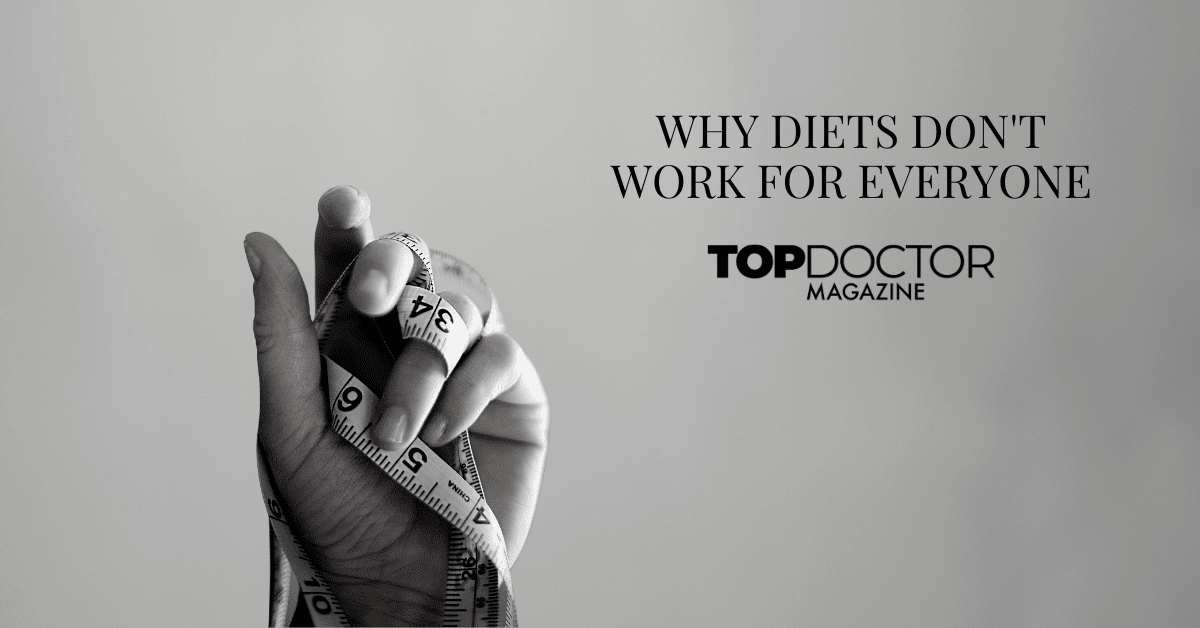Weight loss for health or aesthetic reasons is a common goal for many of us. In fact, over a third of Americans are on a diet at any given time. But have you ever experienced getting on some popular diet, working hard and seeing short-term results only to be disappointed when you gain the weight back?
Unfortunately, it turns out that this pattern is a common occurrence among people today. One study found that 95% of people who lose weight on diets gain the weight back within one to five years when they return to their everyday lifestyles. So, what makes diets so ineffective?
Short-Term Focus vs. Long-Term Results
Diets typically have short time frames. They are often 30-day, 21-day, or 4-week ordeals that you struggle through to get the short-term results. Food regimens tend to be so popular because they have the quick results they promise when appropriately followed. However, diets are predictors of later weight gain.
Because diets are designed to get those quick and exciting results, they are not well-suited to incorporating healthy lifestyle changes into your day-to-day life. They often take a lot of energy and focus on trying and following for a short period. It may be wiser to take this energy and focus it on developing a healthy and balanced lifestyle surrounding food.
Taking the Joy Out of Eating and Setting Restrictions
One of the biggest issues with diets is that they often require you to set limits on certain foods or make caloric restrictions. This can strip the joyful and social aspects of food from your life. Food can be so much more than simple nourishment. For many people, food represents good times with family and friends, developing cooking skills and carrying on tradition and culture. Viewing food as something avoidable diminishes all of these positive qualities in pursuing unassured weight loss.
Setting restrictions on certain foods or labeling them “good” and “bad” has serious consequences. For example, making certain foods unavailable makes us hyper aware and hypersensitive to them, leading to overindulging on these restricted items as soon as they are available to us again.
When dieting calls for you to cut out food without a medical necessity, it is causing more harm than good. Instead, try focusing on balance and allowing yourself to eat all foods in moderation. When some food isn’t entirely off-limits, it won’t have the forbidden fruit appeal. In addition, permitting yourself to eat all foods will help you avoid overindulgence and the potential accompanying guilt.
Diets Are One-Size-Fits-All, But They Don’t Fit
Diets are made to appeal to a broad range of people, so they are not personalized to your individual body, nutritional and emotional needs or genetic predisposition. Increasing evidence shows that genetic predisposition is relevant to your ability to lose weight. Diets cannot account for differences between people or any unique challenges individuals face on their weight loss journey.
Recently, there has been a push towards the Health At Every Size (HAES) movement, which focuses on health measures other than the scale. Unlike diets, this approach to weight and health allows individuals to pursue health regardless of their starting point. In addition, shifting focus from a scale-centric view of health to other determining factors like heart health, cholesterol levels and activity level allows for an inclusive, one-size-fits-all approach to food and exercise.
Health-Minded Alternative to Dieting
If diets don’t work for everyone, what’s the answer? Maintaining a healthy and balanced diet and regularly moving your body are integral to good health and preventative healthcare. One lifestyle approach to eating and moving that does not have the drawbacks of dieting is called Intuitive Eating. This lifestyle is built on a set of 10 principles, including honoring your body’s hunger and fullness cues and rejecting diet culture.
The aspects of dieting that make it ineffectual, the restricting and short-term focus, for example, are not present in Intuitive Eating. This approach is about considering what your body needs to be nourished and making peace with food.
The diet culture that we live in labels foods as “good” and “bad” and makes us feel guilty for eating certain foods. But Intuitive Eating is all for listening to and trusting your body to communicate its needs. It has a long-term focus on health rather than the short-term focus and fleeting weight loss results of dieting.
A Parting Reminder
Eating and exercising are integral parts of overall health. Although promising short-term, the results brought by diets don’t last and often lead to an unhealthy cycle of gaining and losing weight.
Hopefully, this guide has cleared up some of the reasons why diets don’t work for every person and shown why Intuitive Eating may be an adequate alternative. If you’re looking for some more personalized recommendations on diet and your health, be sure to consult with a registered dietician or your primary healthcare provider.






0 Comments